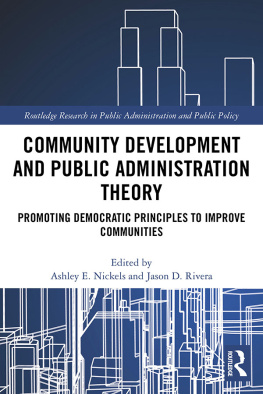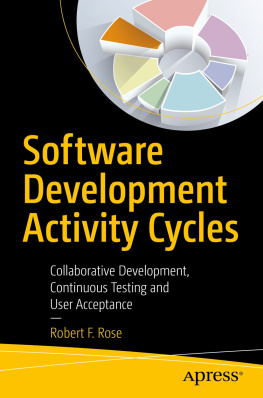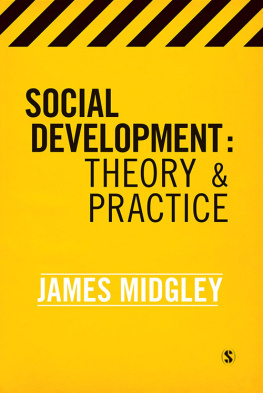DEVELOPMENT PROJECTS AS
POLICY EXPERIMENTS
As international agencies' assistance strategies become more complex, their methods of planning and administration become less effective. Neither the rationalistic techniques of planning and management they adopted during the 1960s and 1970s to control development activities nor the structural adjustment models they used during the 1980s and 1990s to reform economic policies, encouraged the flexibility, experimentation and social learning that are crucial to implementing successfully complex and uncertain development activities. Urgent reorientation of development programmes and continuous testing and verification is required if development activity is to cope effectively with the uncertainty and complexity of the development process.
An adaptive approach is needed, an approach which relies on strategic planning, administrative procedures that facilitate innovation, responsiveness and experimentation and on decisionmaking processes that join learning with action.
Following practical testing and reformulation of ideas presented in the first edition, this up-dated text offers new examples and extended coverage of participatory and strategic management, from individual development projects to economic reform policies such as structural adjustment and privatization.
This book will be of interest to development practitioners and students and academics of the sociology, economics and management of development.
Dennis A. Rondinelli is Professor of International Business at the Kenan-Flagler Business School, and Director of the International Private Enterprise Research Centre at the Kenan Institute of Private Enterprise, University of North Carolina at Chapel Hill.
DEVELOPMENT AND UNDERDEVELOPMENT
Series editors: Ray Bromley and Gavin Kitching
In the same series
DEVELOPMENT AND UNDERDEVELOPMENT IN
HISTORICAL PERSPECTIVE:
POPULISM, NATIONALISM AND INDUSTRIALIZATION
Gavin Kitching
DEVELOPMENT AND THE ENVIRONMENTAL CRISES:
RED OR GREEN ALTERNATIVES?
Michael Redclift
REGIONS IN QUESTION:
SPACE, DEVELOPMENT THEORY AND REGIONAL POLICY
Charles Gore
THE FRAGMENTED WORLD:
COMPETING PERSPECTIVES ON TRADE, MONEY AND CRISES
Chris Edwards
TRANSNATIONAL CORPORATIONS AND UNEVEN
DEVELOPMENT:
THE INTERNATIONALIZATION OF CAPITAL AND THE THIRD
WORLD
Rhys Jenkins
SOCIALISM AND UNDERDEVELOPMENT
Ken Post and Phil Wright
LATIN AMERICAN THEORIES OF DEVELOPMENT AND
UNDERDEVELOPMENT
Christbal Kay
METROPOLIS 2000:
PLANNING, POVERTY AND POLITICS
Thomas Angotti
DEVELOPMENT PROJECTS
AS POLICY EXPERIMENTS
An adaptive approach to development
administration
Dennis A. Rondinelli
Second edition
First published 1993
by Routledge
2 Park Square, Milton Park, Abingdon, Oxon, OX14 4RN
Simultaneously published in the USA and Canada
by Routledge
270 Madison Ave, New York NY 10016
Transferred to Digital Printing 2006
1993 Dennis A. Rondinelli
Typeset in Garamond by LaserScript, Mitcham, Surrey
All rights reserved. No part of this book may be reprinted or
reproduced or utilized in any form or by any electronic,
mechanical, or other means, now known or hereafter
invented, including photocopying and recording, or in any
information storage or retrieval system, without permission in
writing from the publishers.
British Library Cataloguing in Publication Data
A catalogue reference for this book is available from the British Library.
ISBN 0415066220 Hb
ISBN 0415066239 Pb
Library of Congress Cataloging in Publication Data
Rondinelli, Dennis A.
Development projects as policy experiments: an adaptive approach to
development administration/Dennis A. Rondinelli. 2nd ed.
p. cm. (Development and underdevelopment)
Includes bibliographical references and index.
ISBN 0415066220 ISBN 0415066239
1. Economic development projects Developing countries
Managment. I. Title. II. Series.
HC59.72E44R67 1993
338.9'0068dc20 92-17773
CIP
Publisher's Note
The publisher has gone to great lengths to ensure the quality of this reprint but points out that some imperfections in the original may be apparent
CONTENTS
1 THE PROBLEM OF DEVELOPMENT ADMINISTRATION:
COPING WITH COMPLEXITY AND UNCERTAINTY
2 DEVELOPMENT POLICIES AS SOCIAL EXPERIMENTS:
FROM MACROECONOMIC GROWTH TO SECTORAL
DEVELOPMENT
3 DEVELOPMENT POLICIES AS SOCIAL EXPERIMENTS:
FROM GROWTH-WITH-EQUITY TO STRUCTURAL
ADJUSTMENT
4 DESIGNING DEVELOPMENT PROJECTS: THE LIMITS OF
RATIONALISTIC PLANNING AND MANAGEMENT
5 IMPLEMENTING DEVELOPMENT PROJECTS AS POLICY
EXPERIMENTS: TOWARD ADAPTIVE ADMINISTRATION
6 REORIENTING DEVELOPMENT ADMINISTRATION:
PRINCIPLES, PROBLEMS AND OPPORTUNITIES
FIGURES
PREFACE
As the development strategies of international assistance agencies and poor countries became more complex over the past few decades, the methods of planning and managing development projects became less effective. Neither the rationalistic techniques of planning and management adopted during the 1960s and 1970s to control development activities nor the structural adjustment models used during the 1980s and 1990s to reform economic policies encouraged the flexibility, experimentation and social learning that are crucial to successfully implementing complex and uncertain development activities.
The conventional planning and administrative methods used by international assistance agencies and governments in developing countries often resulted in costly and ineffective analysis, greater inconsistency and uncertainty, and the delegation of important development activities to technical experts. They have led international agencies and governments to make inappropriate and sometimes harmful interventions because the intended beneficiaries were not encouraged to participate in decision-making and because administrators were discouraged from detecting and correcting errors. Structural adjustment policies evolved from methods of analysis that often ignored or discounted the political, institutional and social aspects of development. Both approaches suffer from the difficulties of defining development objectives concisely, lack of appropriate data, inadequate understanding of local social and cultural conditions, ineffective means of controlling behavior, the dynamics of political interaction, and low levels of administrative capacity in many developing countries.
In this book I argue that development administration must be reoriented to cope more effectively with the inevitable uncertainty and complexity of the development process. One of the most promising ways is to use an adaptive approach that relies on strategic planning, on administrative procedures that facilitate innovation, responsiveness and experimentation, and on decision-making processes that join learning with action.
It is appropriate that a book recommending a learning approach to planning and administration is the result of my own learning and experimentation over more than two decades. The ideas presented here build on those found in the first edition. I have reformulated them a number of times in articles and books and tested them in development projects for which I have served as an advisor. As is the case with any ideas that are the result of learning and experimentation, I expect that they will change as I and others continue to test them in the future. Thus, I see them as







